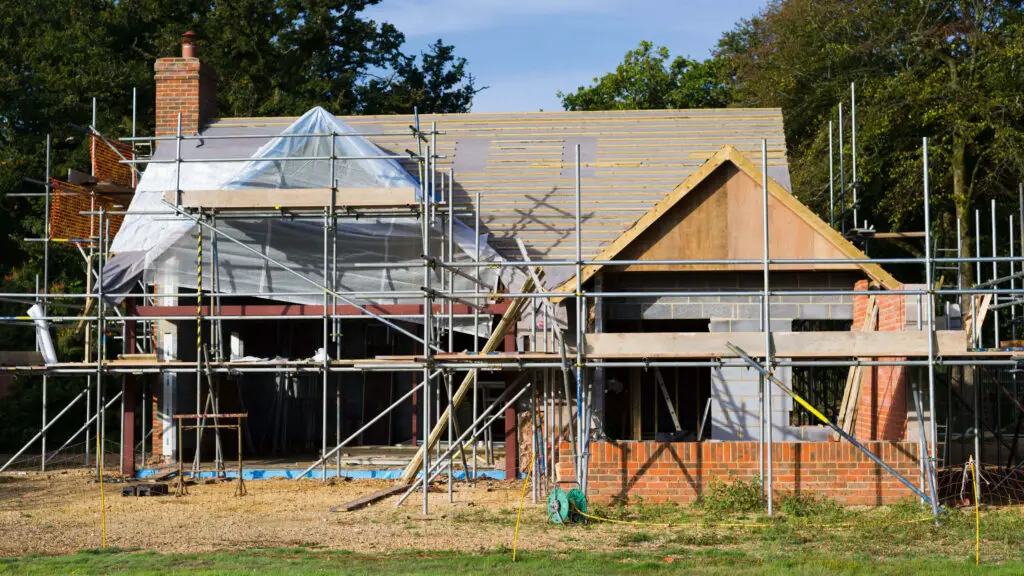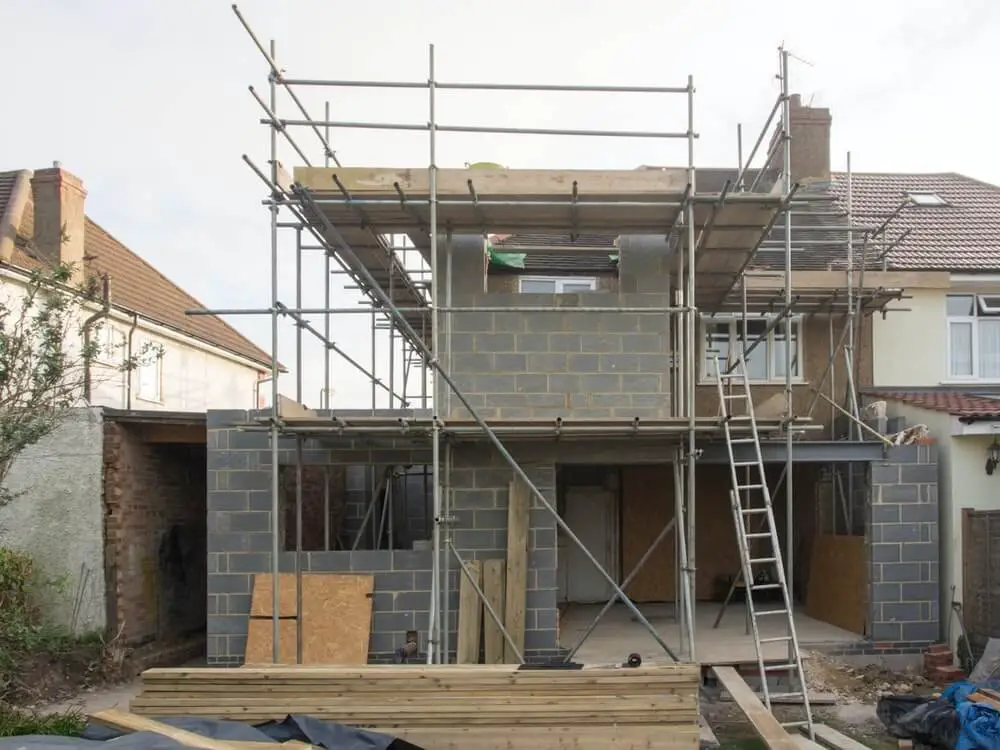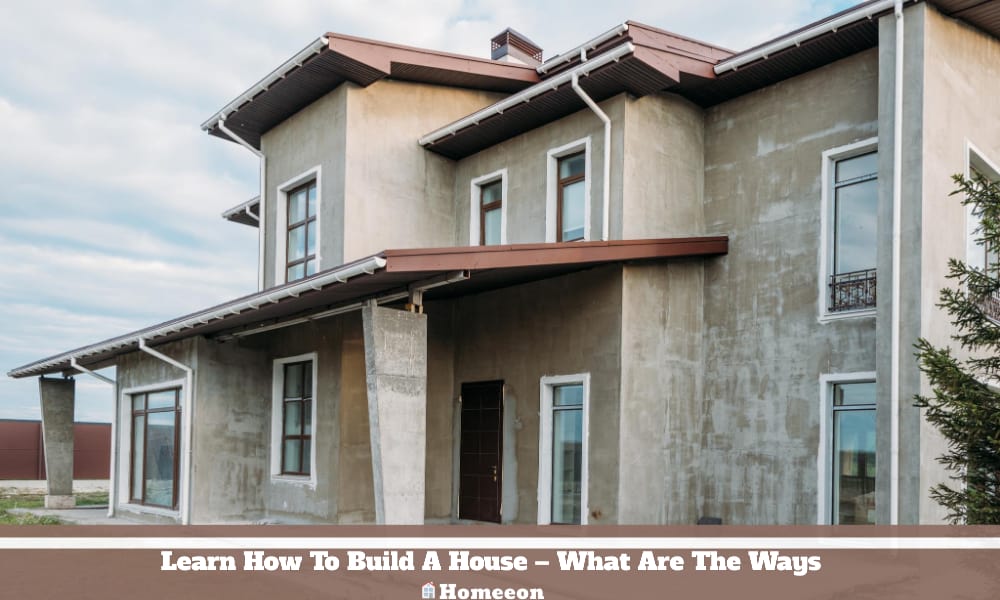Last Updated on August 6, 2023 By Emma W. Thomas
To build a house, learn these steps:
- Plan your design and budget
- Obtain necessary permits
- Hire skilled professionals or DIY
- Lay the foundation
- Erect the frame
- Install utilities
- Complete interior
- Finish with exterior details
What Are The Ways To Learn How To Build A House
Building a house is a complex and challenging task that requires expertise in various fields. While hiring professionals is always an option, some individuals may have the desire to learn how to build a house themselves. If you’re one of those passionate individuals, here are some effective ways to learn how to build a house:
- Enroll in Construction Courses: Many vocational schools and community colleges offer construction-related courses. These can range from basic carpentry to advanced building techniques. Enrolling in such courses will provide you with a solid foundation of knowledge and skills necessary for building a house.
- Join Apprenticeship Programs: Apprenticeship programs are an excellent way to gain hands-on experience in construction. By working closely with experienced professionals, you’ll learn various aspects of house building, from reading blueprints to using tools and equipment safely.
- Volunteer for Habitat for Humanity: Habitat for Humanity is a non-profit organization that builds houses for low-income families. By volunteering with them, you’ll learn valuable building skills while contributing to a worthy cause. Habitat for Humanity offers training programs and the opportunity to work alongside skilled volunteers.
- Read Books and Online Resources: There are numerous books, manuals, and online resources available that can help you learn the basics of house construction. Consider investing in reference books that cover topics like framing, electrical, plumbing, and foundation work. Online platforms, such as YouTube, also offer a wealth of video tutorials.
- Attend Workshops and Seminars: Look out for local workshops and seminars that focus on home construction. Experts in the field often host these events, providing valuable insights into best practices, tools, and techniques. Attending these events can expand your knowledge and build connections within the construction industry.
- Seek Mentoring: Finding a mentor who is a seasoned builder can be immensely valuable. Mentors can guide you through the building process, offer practical advice, and help troubleshoot any challenges you may encounter. They can also provide valuable industry contacts and resources.
- Start with Small Projects: Begin by taking on smaller building projects like sheds or playhouses. By starting small, you’ll gradually develop your skills and become more comfortable with the construction process. These smaller projects also allow you to learn from your mistakes without the pressure of a full-scale house build.
What You Need To Build A House

For you to avoid frustrations as you build your house, you will need to put a few issues in place including:
Land
You will need to figure out where to build your house. In case you have a plot of land already, make sure you understand the cost implications of any excavations or land reshaping.
Suppose you intend to purchase a parcel of land, research on the area’s zoning codes. Be sure to know their policies on what you can or can’t include in your plans such as pools, garden sheds, and other unique features. You can check the zoning codes rules regarding fence sizing, decks, or other additions.
Have A Plan
You will need to have a drawing of everything you want to be included in the house. Consider enlisting a qualified architect’s services to make it easier for you and give the necessary advice. They will help include any unique features that you may have in mind.
Let the designer understand your vision and how you want the outcome to be.
Hire A Contractor
A contractor will help you to make decisions concerning your building. This professional will advise you on the logistics behind building your house, the best materials to use, and even recommend the right supplier. They are also knowledgeable about the legal and safety requirements of construction in your place.
Prepare A Budget
After you know all the associated costs for building your house, it is now high time you prepare a budget. This budget should include everything, including reshaping and excavating the land, costs of materials, and labor. You don’t want to start the building process and run out of cash before completion.
You can look for financing in case you don’t have enough money at hand. Look for a financial institution that gives loans for your specific project.
Ways To Build Your House
There are different ways you can use to build your house including;
Using A Contractor
If you are not building your house on a budget and would like to include your vision, use a contractor’s services. These professionals have the experience that you need to construct an ideal house. They will be in a position to advise you about everything you want until you get your dream home in place.
A contractor will also help you choose the right materials for constructing a property that will last long.
Building Without A Contractor
If you have some experience with building projects or have a friend/family member who is conversant with construction, you can avoid contractors. Ensure that you have the necessary materials and resources, skilled labor, the right tools, and the correct knowledge.
Even when you feel that you have everything you need to build your home, you may still need the services of a designer, an architect, or a contractor. Doing this will help you avoid unnecessary mistakes if it is your first time to do it.
You may still feel confident to do without these professionals’ services but can use the internet to get resources. You can download floor plans and use them to achieve your desired outcome.
Choose A Simple Roof Design
By choosing a simple design for your roof, you will be saving a lot on costs. Simple roof designs are also a good option for preventing leaks and damages over time. You can consider a plain, roof that slopes gently since it will not only look good, but it will save you some money.
Consider An Energy-Efficient Home
Consider building an energy-efficient home for sustainable living. This kind of home will help you save a lot of money in energy bills over time. You can do this by insulating the house or installing high-efficient windows to utilize solar or wind energy.
Although the initial cost for installing these features may be high, it will help save money in the long run.
Consolidate Your Water Usage Areas
If you want to save money when building your home, you may want to put in the same place water usage areas. You can clump the bathrooms, kitchen, and laundry room as close together as possible. Putting the areas close together will help you save on extra costs of plumbing materials. Make sure that these features are placed either vertically or horizontally.
Postpone Expensive Finishes
If you run low on a budget before completing your project, you can avoid expensive finishes for now. You can focus on constructing a strong foundation and do the finishing later. You may postpone installing floors, countertops, and other final touches to a later date when funds become available.
Use Of Unconventional Building Materials
If you are looking forward to building something new and unique, try utilizing unconventional building materials. Shipping container homes (built from reclaimed storage containers) are becoming popular by the day.
You can try this innovative idea to get a unique, durable home with your desired specification. Embracing the idea helps not only to recycle materials but will also save you some construction costs.
Off The Grid Homes
Off-the-grid homes (also known as self-sufficient homes) are also getting popular over time. These types of homes are based on natural energy resources such as wind or solar-powered generators. The homes also rely on composting toilets, and the homeowners embrace gardening and harvesting foods grown at home.
You can get off-grid home plans online if you are passionate about them.
Which Is Better Building Or Buying A Home?

Whether to build or buy a house should not be taken lightly since both options have their advantages and disadvantages.
Buying A Home
Buying an already existing home is convenient and can also be inexpensive. After your lender pre-approves your home loan, you can look for a suitable house and make an offer. You can hire the services of a qualified and experienced real estate agent to get suitable properties, guide you through the negotiation process, as well as assist with paperwork.
If your offer on the property is accepted, you can immediately close the deal and move into the premises. While the buying process involves several steps, you get the convenience of settling in your house within a short period.
Building A Home
You may not get the same convenience of buying a home when building one. You will need time to look for land, find an architect or builder, and choose your structure’s features. You will also have to look at the systems such as access to water and sewage systems and other environmental permits.
One of the advantages of building your own house is that you get what you want. You will also create an energy-efficient home with proper standards for ventilation, heating, insulation, cooling, and air filtration. An energy-efficient home helps you to save some money on utility bills over time.
You can get more efficient fixtures for plumbing, toilets, and electrical that will let you build ‘green’ for a better and sustainable home. You will also have the option of installing wire or sleeve for upgrading technology in the future such as solar and automation.
Wrap Up
There are several ways of building a home, but you need to take time to explore them to come up with what you want. You can hire the services of different professionals such as contractors and architects as they are more knowledgeable.
If you are on a budget, you can consider some strategies such as using unconventional building materials. You can also postpone expensive finishes for a later date.
References:
https://iamautodidact.com/how-to-build-a-house/
https://www.architecturecourses.org/build/how-build-your-own-house
Emma is a graduate of Domestic Science or Family and Consumer Sciences (Home Economics) from the University of Wisconsin. She has 7 years of experience Working with the strategic section of BestBuy and now writing full-time for Homeeon.
From Managing the Home, Interiors, Cleaning, and Exteriors to Gardening and everything about Making A Home Liveable – is her passion and this Homeeon is the result of this.
Emma loves decorating her home with the best stuff found online. She cares about quality over anything and writes reviews about them here in Homeeon. Get in touch with her over Pinterest.
Keep reading her blogs.

